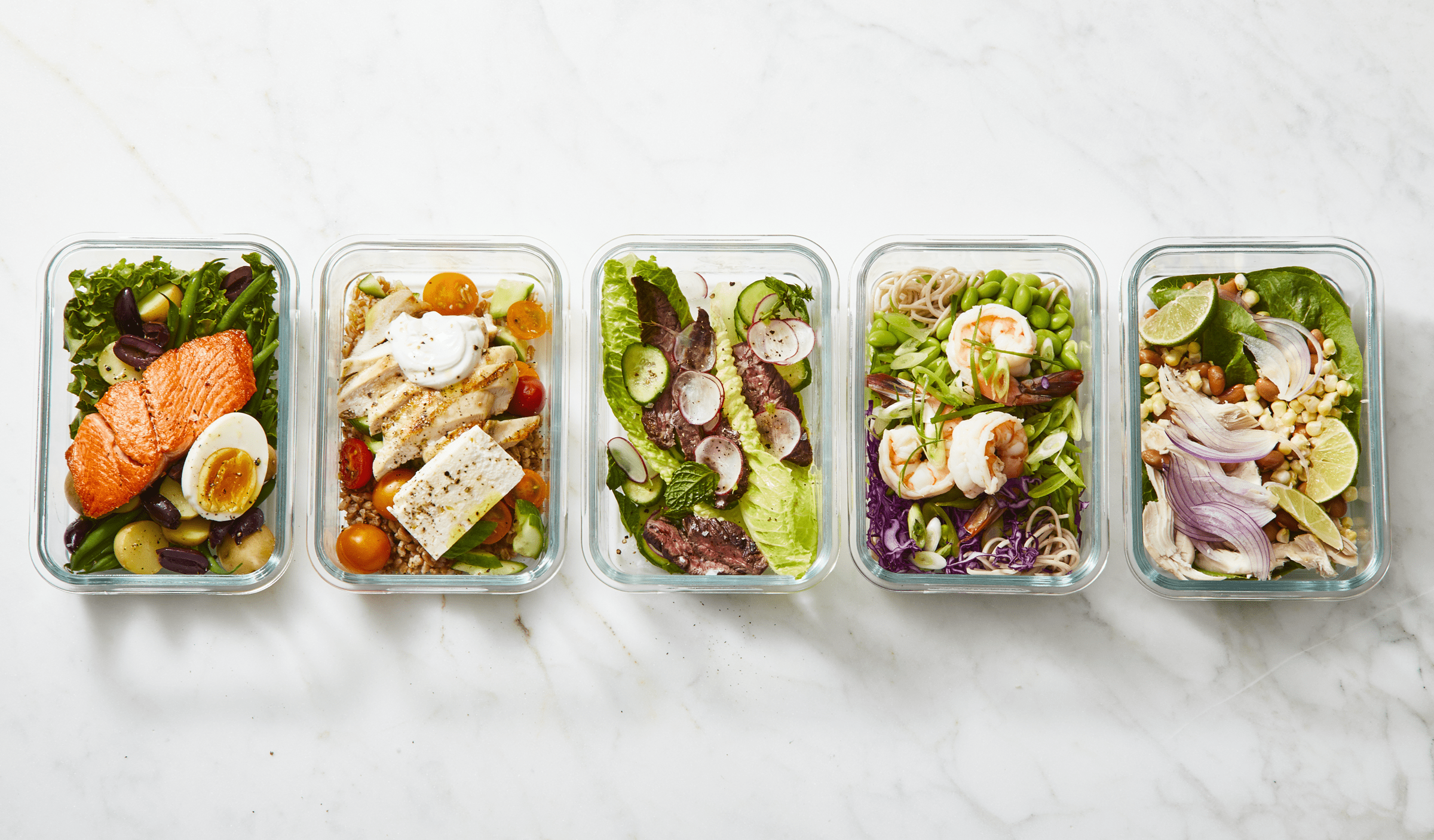Meal Prep Tips for a Healthier Week
In today’s fast-paced world, finding time to prepare healthy meals can be a challenge. Between work, family, and social commitments, it’s easy to fall into the trap of quick, less nutritious options. Meal prepping—planning and preparing meals ahead of time—has become an effective strategy for maintaining a balanced diet while saving time and reducing stress. With some thoughtful planning, you can enjoy nutritious, delicious meals all week long without the daily hassle.
Here are some practical meal prep tips to help you create a healthier week with ease.
1. Plan Your Meals and Snacks
Successful meal prepping starts with a plan. Spend some time each week mapping out what you want to eat for breakfast, lunch, dinner, and snacks. Consider your nutritional needs, schedule, and personal preferences.
Tips:
Choose recipes that share ingredients to reduce waste.
Balance your meals with lean proteins, healthy fats, complex carbs, and plenty of vegetables.
Factor in busy days when a grab-and-go option might be necessary.
Creating a meal plan not only streamlines grocery shopping but also helps you avoid impulsive and unhealthy choices.
2. Create a Smart Grocery List
Once your meals are planned, write a detailed grocery list organized by sections of the store. This reduces the time spent wandering aisles and helps you stay focused on buying what you need.
Tips:
Check your pantry and fridge before shopping to avoid duplicates.
Buy seasonal produce to get the best flavor and price.
Consider buying in bulk for staples like grains, beans, nuts, and frozen vegetables.
Sticking to your list helps control food costs and reduces food waste.
3. Batch Cook Staples
Cooking in batches saves time and ensures you have components ready to assemble meals throughout the week. Prepare staples such as grains (brown rice, quinoa), proteins (chicken breast, tofu, beans), and roasted or steamed vegetables.
Tips:
Use your oven, slow cooker, or Instant Pot to prepare large portions easily.
Cook grains and proteins without seasoning, then customize flavors when serving.
Store cooked foods in airtight containers and label with dates.
Batch cooking minimizes the need for daily cooking and allows for flexibility in meal combinations.
4. Invest in Quality Containers
Having the right storage containers makes meal prep easier and helps keep food fresh longer. Choose containers that are durable, microwave-safe, and leak-proof.
Tips:
Use glass containers for reheating and better longevity.
Opt for containers with compartments if you like separate ingredients.
Keep lids and containers organized for quick access.
Proper storage preserves taste, texture, and safety.
5. Prep Ingredients, Not Just Meals
Meal prep isn’t only about cooking entire meals in advance. Prepping ingredients like chopped veggies, cooked beans, or portioned nuts can make putting meals together faster and less intimidating.
Tips:
Wash and chop vegetables and store them in clear containers or bags.
Pre-portion snacks like nuts, hummus, or fruit for convenience.
Prepare sauces, dressings, or marinades in advance.
Having ready-to-use ingredients helps you throw meals together quickly, even on your busiest days.
6. Keep It Simple and Flexible
Meal prepping doesn’t have to be complicated or restrictive. Start simple and allow room for flexibility to avoid burnout.
Tips:
Prepare 3–4 different meals you can rotate throughout the week.
Use versatile ingredients that work in multiple dishes.
Allow for one or two meals out or leftovers to keep things interesting.
Remember, meal prepping is a tool to support your lifestyle, not a rigid rule.
7. Focus on Nutrient-Dense Foods
Make health a priority by choosing nutrient-dense foods that fuel your body and mind. Include a variety of colorful vegetables, whole grains, lean proteins, and healthy fats.
Tips:
Incorporate leafy greens like spinach or kale.
Choose whole grains such as quinoa, brown rice, or farro.
Add healthy fats from sources like avocado, nuts, and olive oil.
Eating a diverse range of foods ensures you get a broad spectrum of essential vitamins and minerals.
8. Label and Organize Your Meals
Keeping your fridge and freezer organized with labeled containers helps you keep track of what you have and prevents food from spoiling.
Tips:
Use masking tape or pre-made labels to write the meal and date.
Store ready-to-eat meals at eye level for easy access.
Rotate older meals to the front to ensure nothing gets forgotten.
Organization saves time and reduces food waste.
9. Incorporate Variety
Eating the same meals repeatedly can lead to boredom and temptation to stray from healthy habits. Mix up your meal prep with different recipes and flavors.
Tips:
Experiment with herbs, spices, and international cuisines.
Try new vegetables or grains each week.
Include a variety of cooking methods like roasting, grilling, or steaming.
Variety keeps your meals exciting and nutritious.
10. Don’t Forget Hydration
While prepping meals, also plan for your hydration needs. Drinking enough water supports digestion, energy levels, and overall health.
Tips:
Prepare infused water with lemon, cucumber, or mint.
Keep a reusable water bottle handy throughout the day.
Set reminders to drink water regularly.
Good hydration complements your healthy eating habits.
Final Thoughts
Meal prepping is a practical way to take control of your nutrition, reduce stress, and save time during busy weeks. With planning, batch cooking, and smart organization, you can enjoy balanced, homemade meals without the daily pressure of cooking.
Start small, be flexible, and tailor your meal prep routine to fit your lifestyle and preferences. Over time, these habits will help you maintain healthier eating patterns, boost your energy, and improve overall well-being.







